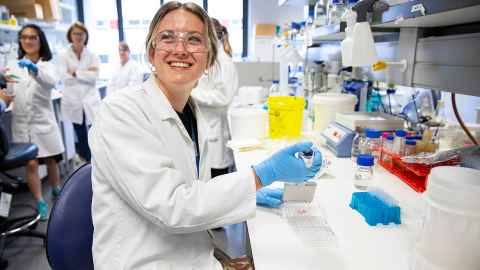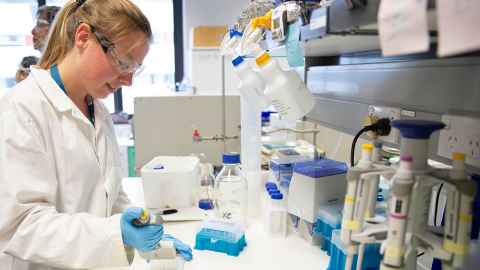Covid-19 blood survey confirms meagre transmission
22 April 2021
The first nationwide survey to detect Covid-19 antibodies in blood highlighted the success of efforts to eliminate the disease.

Associate Professor Nikki Moreland said: “We found a very low rate of Covid antibodies in our survey population (0.10 percent). This means that undetected community transmission has been very low and is evidence that New Zealand’s elimination strategy has been a success.”
Dr Moreland and her team in the Faculty of Medical and Health Sciences, are adept at Covid-19 serology, testing that detects the presence of antibodies in blood. It has been estimated that up to 15 percent of people contracting Covid-19 have no symptoms but remain infectious.
Standard Covid DNA tests only detect the virus when it is present during an infection. Serology testing reveals Covid antibodies that remain many months after infection.

The researchers worked with the New Zealand Blood Service to collect 9,806 samples from people aged 16-88 years throughout the country and tested them for the tell-tale Covid antibodies to the viral spike protein.
From the 9,806 samples, collected from Dec. 3 last year to Jan. 6, they found 18 that tested positive for Covid-19 antibodies. Six of these were identified as previously-confirmed Covid infections, and a further four came from people who had travelled from the United Kingdom and Europe, suggesting infection had happened outside New Zealand.
The remaining eight positive samples were unexplained, suggesting they were previously undetected cases of community transmission. These eight cases were spread out, coming from seven district health board regions.

The survey showed an estimated 0.10 percent seroprevalence (or presence of Covid-19 antibodies). This is similar to a study recently conducted in Sydney and compares favourably to surveys in Europe and America where seroprevalence has been reported to be greater than 10 percent. In these countries the pandemic has been poorly controlled.
The study is the country’s first large-scale serology survey of Covid-19 and has been released as a pre-print, which means it is yet to be peer reviewed.
Media contact
Paul Panckhurst | media adviser
M: 022 032 8475
E: paul.panckhurst@auckland.ac.nz